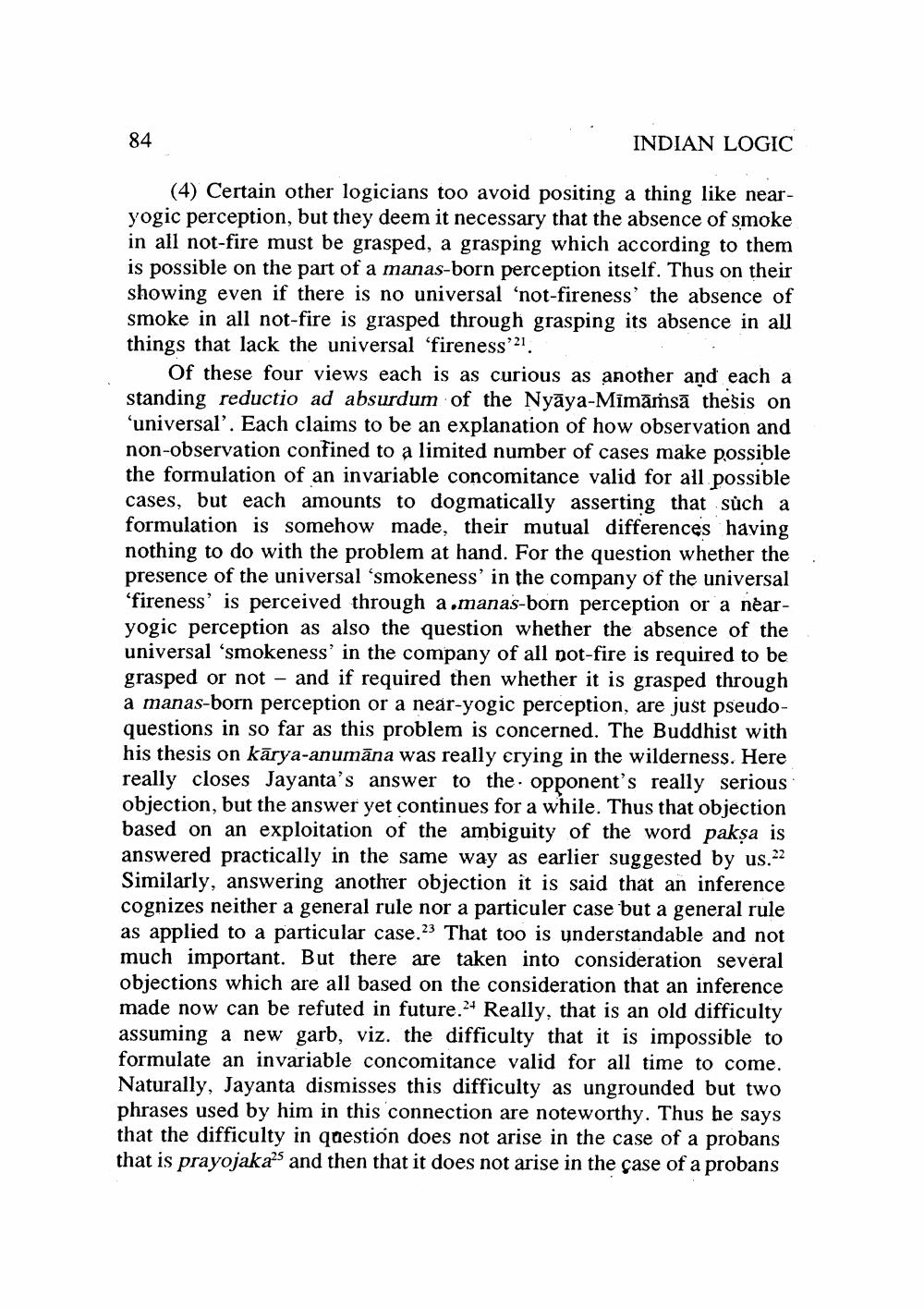________________
84
INDIAN LOGIC
(4) Certain other logicians too avoid positing a thing like nearyogic perception, but they deem it necessary that the absence of smoke in all not-fire must be grasped, a grasping which according to them is possible on the part of a manas-born perception itself. Thus on their showing even if there is no universal ‘not-fireness' the absence of smoke in all not-fire is grasped through grasping its absence in all things that lack the universal 'fireness'?
Of these four views each is as curious as another and each a standing reductio ad absurdum of the Nyāya-Mīmāmsā thesis on ‘universal'. Each claims to be an explanation of how observation and non-observation confined to a limited number of cases make possible the formulation of an invariable concomitance valid for all possible cases, but each amounts to dogmatically asserting that such a formulation is somehow made, their mutual differences having nothing to do with the problem at hand. For the question whether the presence of the universal ‘smokeness' in the company of the universal 'fireness' is perceived through a.manas-born perception or a nearyogic perception as also the question whether the absence of the universal 'smokeness' in the company of all not-fire is required to be grasped or not - and if required then whether it is grasped through a manas-born perception or a near-yogic perception, are just pseudoquestions in so far as this problem is concerned. The Buddhist with his thesis on kārya-anumāna was really crying in the wilderness. Here really closes Jayanta's answer to the opponent's really serious objection, but the answer yet continues for a while. Thus that objection based on an exploitation of the ambiguity of the word paksa is answered practically in the same way as earlier suggested by us.22 Similarly, answering another objection it is said that an inference cognizes neither a general rule nor a particuler case but a general rule as applied to a particular case.23 That too is understandable and not much important. But there are taken into consideration several objections which are all based on the consideration that an inference made now can be refuted in future.24 Really, that is an old difficulty assuming a new garb, viz. the difficulty that it is impossible to formulate an invariable concomitance valid for all time to come. Naturally, Jayanta dismisses this difficulty as ungrounded but two phrases used by him in this connection are noteworthy. Thus he says that the difficulty in question does not arise in the case of a probans that is prayojaka’s and then that it does not arise in the case of a probans




